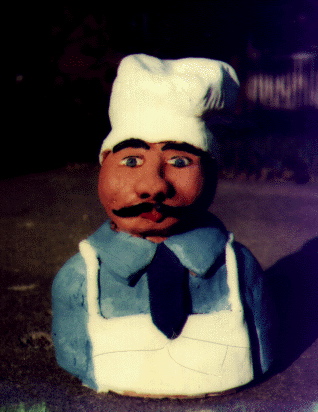Imagine my horror when, upon discovering that Henry Jenkins took me up on my tag to disclose his secrets to success (revealing, alas, that constant work does seem to be his main strategy), I also found that he had tagged me on the 5 things you don’t know about me thing several weeks ago and I managed not to notice. Yikes. shame on me. Bad blogger, no tags. So now that he has shared his far more interesting pieces of advice, I will humbly generate 5 things you may not know about me and then in the name of avoiding chain letters, pyramid schemes, good memes gone bad, and getting back on topic, I will set it to rest and not tag anyone else.
1. When I was 2 years old, my parents took me all over the world for a year: Denmark, Germany, Japan, Cambodia, India… When I got home, I asked where all the elephants were and why all the kids had shoes. I don’t remember any of this, though my dad, a great photographer, took many slides. I’ve got a picture in my dining room of 3-year-old me staring up in awe at carved goddesses at Angkor Wat . I attribute my inability to comprehend xenophobia, racism, homophobia and religious intolerance to that early experience of immersion in difference at a time when I must have been first learning the world’s boundaries.
2. My stepfather, a famous Keats scholar, raised me to be deeply spontaneously silly. When I was a kid there were a lot of family dinners where I’d be lying on the floor holding my sides trying to stop laughing while milk squirted out my nose on account of some hilarious thing he said. He used to park at the far end of the parking lot at fancy restaurants and do John Cleese silly walks up to the door. I laughed an awful lot at playful nonsense and it had a permanent effect on my approach to life.
3. In 5th grade, I calculated the age difference between Paul McCartney and myself and noted with despair that if things went wrong with Linda he was never going to marry anyone as young as me. And now he’s divorcing someone younger.
4. I had a profound mystical experience one sleepless teenage night. It was a total epiphiny in which infinity, the oneness of the universe, and my unity with all of this made complete intuitive sense and I felt giddy with bliss. A few months later, my English teacher brought an article from Life or somesuch magazine about mystical experiences to school and read it outloud to the class. In retrospect it seems pretty weird that she did that.
5. I took a lot of art classes as a child. This was my masterpiece:

Unfortunately, he has no ears, but he is much beloved on his perch in my mother’s dining room, and I am always happy to see him when I travel home.

